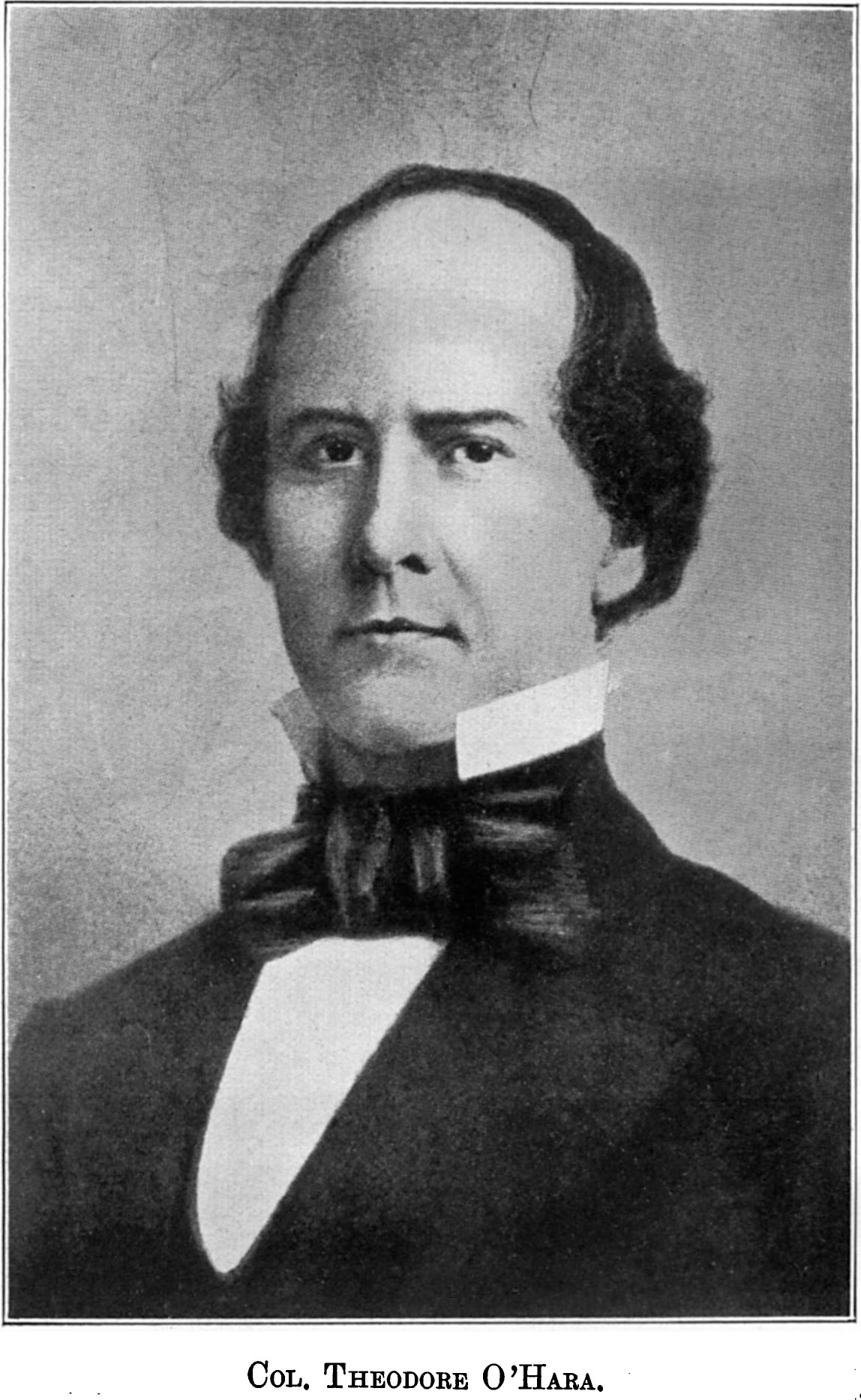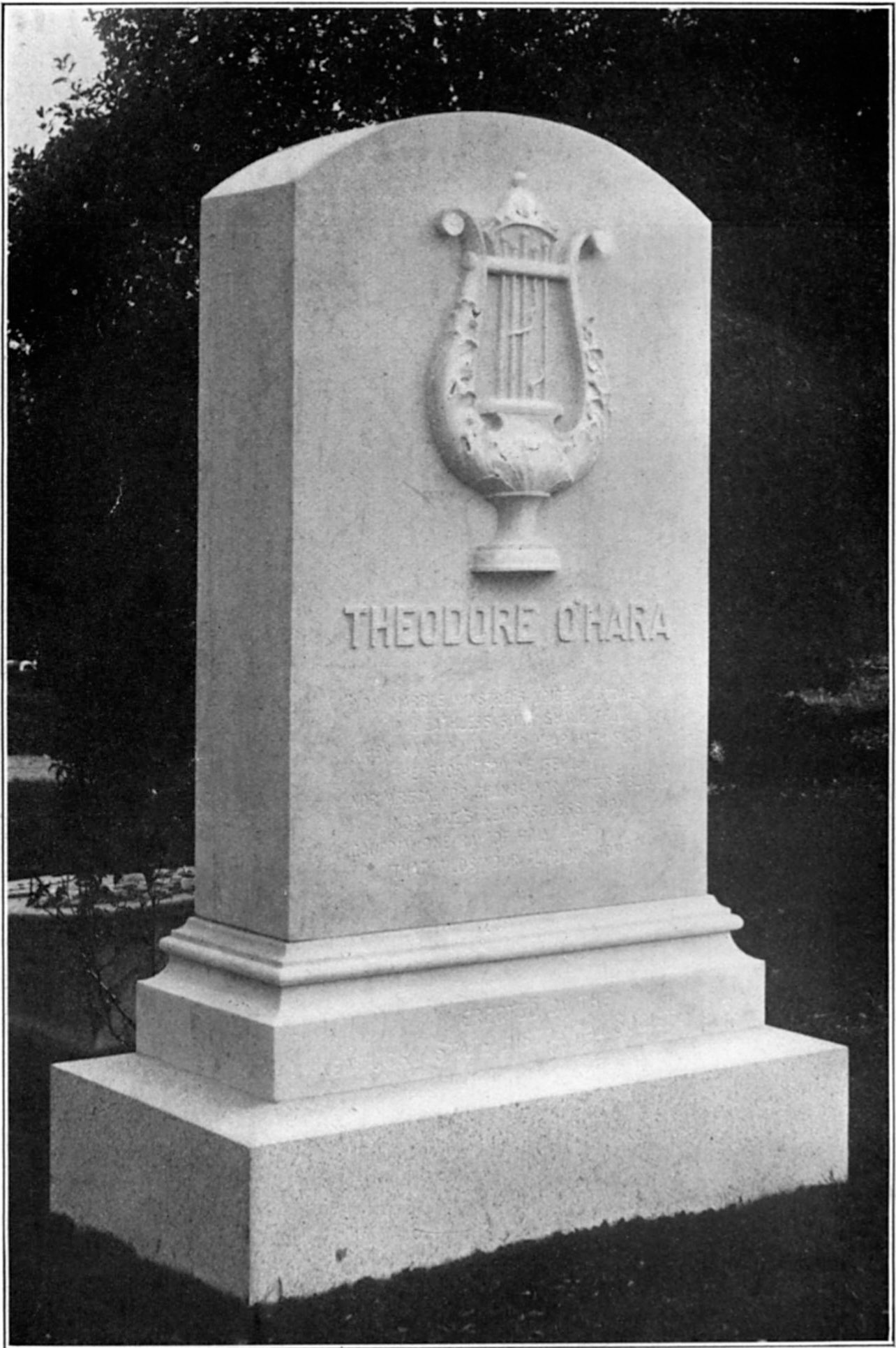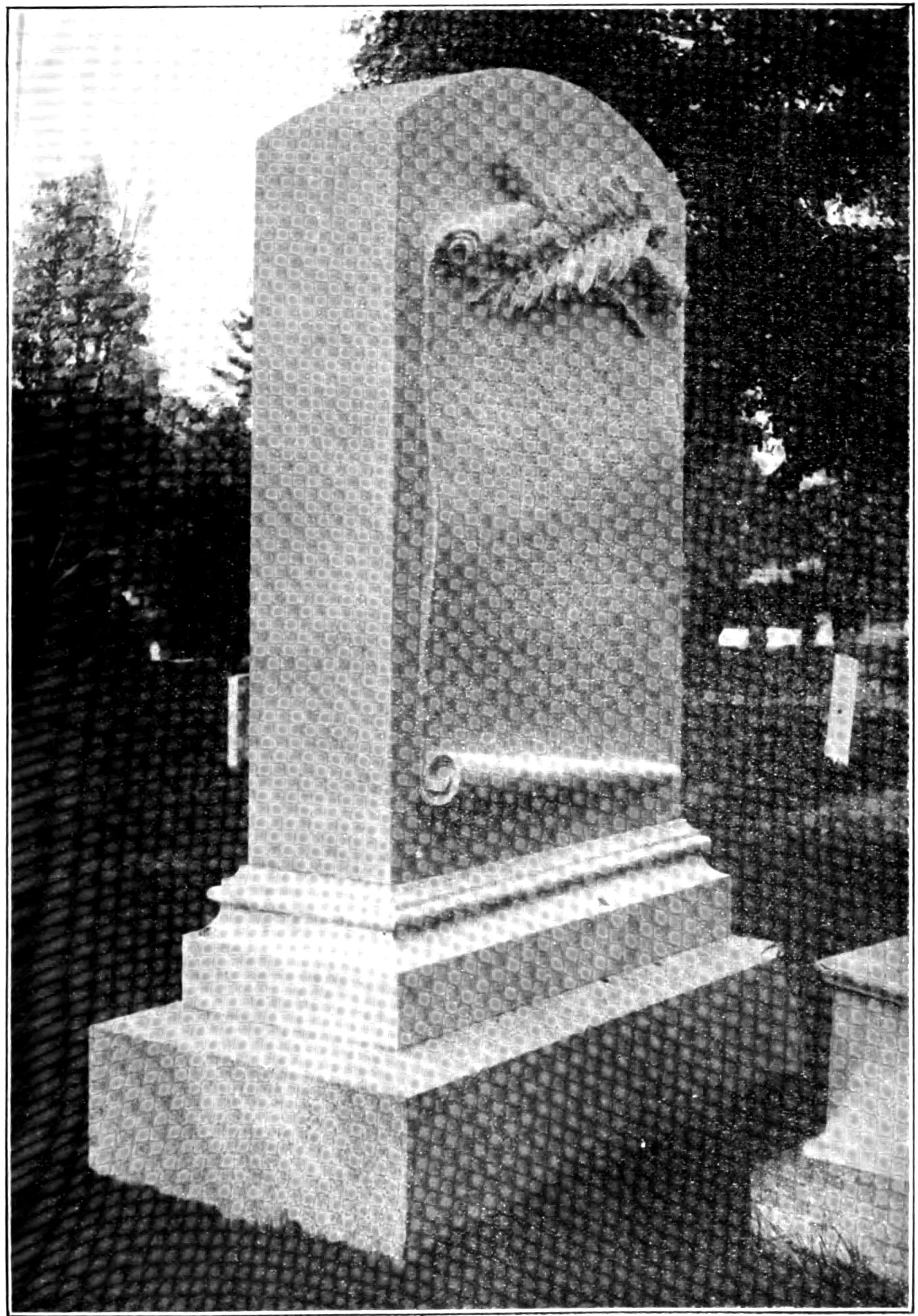Register of Kentucky State Historical Society, January, 1914.
KENTUCKY'S SOLDIER BARD.
BY MRS. JENNIE C. MORTON

KENTUCKY'S SOLDIER BARD.
By
Mrs. Jennie C. Morton
(For the Yeoman).
We'll bring him back, Kentucky's dead,
Her valiant Son of Song,
Tho' now in higher, brighter worlds
His spirit doth belong.
Yet here in honored kindred dust
His ashes must repose,
Among the dead o'er whom his muse
Its martial glory throws.
No sudden blast of silver trumps
Needs now O'Hara's name;
He won the starry signet here
Of an immortal fame.
The voiceful marble by the sea*
His minstrelsy engraves,
And alien skies and foreign lands
His lyric of these Braves.
Repeat as martial-touching hymns,
Where'er our language's read
His tuneful monody is known
“The Bivouac of the Dead.”
His was the Celtic&apo;s ardent breast
That answered war's alarm
With glowing eyes, chivalric heart,
And soldier's gallant arm.
When Peace had sheathed the sword he drew,
And War was known no more,
Like suns that march the summer sky
When thunder storms are o'er,
He trod the paths of tranquil times
As statesman, scholar, wit—
His fair renown e'er unsurpassed,
Like Sheridan and Pitt.
No copyist of the plodding mind
That reproduces thought,
And but retints a master's work
In greater ages wrought:
His gifted soul like morning glowed.
With colors all his own—
He dipped like Chaucer, in the fount
Of nature's heart alone.
His was the lofty Harp of Song
That knew its master's hand,
And gave unto his thrilling touch
A lyric at command.
Its stirring sounds awoke the air
Like Warrior Bards of yore,
And hearts responsive sing its strains
Alike on sea and shore.
Rare beauty sat upon his brow,
And crowned him with her grace—
Not wanting he in any gift
Of nature's masterpiece.
Glad-hearted as a boy, and bright
And tender e'er as brave,
A nobler mold of manliness
Ne'er went down to the grave.
Where glory gilds the patriot's grave,
And love soft-footed strays,
And memory brings the cherished charms
of deathless deeds and days,
Where tree and flower and flowing stream
Inspired his gifted hand,
We'll lay the minstrel soldier down
'Mong the illustrious band.
*The Monument at Boston.—Since this poem was written, extracts from the “Bivouac of the Dead” have been carved on monuments at Dublin, London, Constantinople and perhaps many other foreign places. It is inscribed over the archway of the gate of the National Cemetery at Arlington, and on many military monuments over the country.
The beautiful memorial tablet to Theodore O'Hara, Kentucky's world famous poet, the two faces of which are shown in the accompanying illustrations, was erected in the Frankfort cemetery October 30th, 1913, by the State Historical Society, at the head of the Sarcophagus the State placed over his grave in 1873.
The committee charged with this delicate and honoring tribute to the famous poet received from the monument builders, the New Muldoon Monument Company, of Louisville, Kentucky, the tablet completed in the most satisfactory style.
The committee that directed the work, as published in the September Regster, 1913, were: Acting Governor Edward J. McDermott, President Ex-Officio; Mrs. Jennie C. Morton, Regent and SecretaryTreasurer; Miss Sallie Jackson, Librarian; H. V. McChesney, First Vice President; Prof. G. C. Downing, Assistant; W. W. Longmoor, Curator; Col. E. H. Taylor, Jr., Honorary Member.
The committee that accepted the tablet were: H. V. McChesney, Mrs. Jennie C. Morton, Miss Sallie Jackson and W. V. Longmoor; other members not being able to be present.
THE FOLLOWING DESCRIPTION OF THE MONUMENT IS REPUBLISHED FROM THE SEPTEMBER, 1913 REGISTER:
It is a beautiful tablet of Italian marble six feet in height, upon a granite base, which will be erected at the head of O'Hara's tomb. On the front of the stone in bas-relief is an exquisite harp; beneath it is inscribed, “Theodore 0'Hara,” and beneath his name this verse, which refers to the military monument directly in front of the tablet:
“Yon marble minstrel's voiceful stone,
In deathless song shall tell,
When many a vanished year hath flown,
The story how ye fell;
Nor wreck, nor change, nor winter's blight,
Nor time's remorseless doom,
Can dim one ray of holy light
That gilds your glorious tomb.”
Beneath this verse are the words, “Erected by the Kentucky State Historical Society;' on the reverse side-facing the Sarcophagus—at the top is a pen with a palm branch resting lightly on it, and beneath, the other two eight line stanzas:
“The muffled drum's sad roll has beat
The soldier's last tattoo;
No more on life's parade shall meet
That brave and fallen few;
On Fame's eternal camping ground
Their silent tents are spread,
And glory guards with solemn round,
The Bivouac of the Dead.
“Rest on, embalmed and sainted dead,
Dear as the blood ye gave;
No Impious footsteps here shall tread
The herbage of your grave
Nor shall your glory be forgot
While Fame her record keeps
Or Honor points the hallowed spot
Where Valor proudly sleeps.”


At JStor:
Kentucky's Soldier Bard, by Jennie Chinn Morton, Register of Kentucky State Historical Society, Vol. 12, No. 34, January, 1914, Pages 7-10. (PDF)
Digitized by Google:
Kentucky's Soldier Bard, by Jennie Chinn Morton, Register of Kentucky State Historical Society, Vol. 12, No. 34, January, 1914, Pages 7-10. (PDF)
Also at Internet Archive.